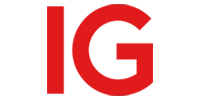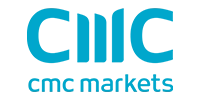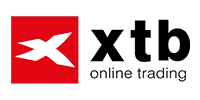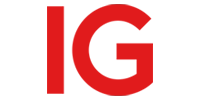Table Of Contents
- Best FOREX Brokers in Japan in 2026
- Top Tips for Selecting the Best FOREX Brokers in Japan
- Best FOREX Brokers in Japan for 2026
- What is FOREX and Why Do We Need a Broker to Trade?
- How Do I Choose the Best FOREX Broker in Japan?
- FOREX Regulation and Licensing in Japan
- Leverage
- Stop out
- Commissions and Fees
- Payments, Deposits, and Withdrawals in Japan
- FOREX Trading Customer Service
- Technical Aspects of the Broker’s Website
- Ask Other Traders on Our Network
- Which FOREX broker has the best platform?
- Which FOREX broker charges the lowest fees?
- Which FOREX broker offers the most CFDs?
- Which FOREX broker offers the most assets?
- Which FOREX broker is best for professionals?
- FOREX Trading Scams and How to Avoid Them
- Will Your Money be Protected If Your Broker Becomes Insolvent?
- The Dos and Don’ts of FOREX Brokers
- What Trading Platforms, Tools, and Features Should a Broker Offer?
- What Tradable Assets and Instruments Should My Broker Offer?
- Who is Arincen and What Do We Do?
- Conclusion
- Arincen’s Review Methodology
Best FOREX Broker in Japan for 2026
With many years of meticulous FOREX broker testing, Arincen stands out as a voice of authority. Our analyses, shaped by exhaustive data collection, are trusted by many. Each year, we gather 120 data points from more than 100 brokers. Our team of more than 20 people collaborate extensively to produce high-quality broker reviews like this one. For a detailed explanation of how we test brokers, navigate to the bottom of this article.
Note: We earn money by selling ads, placements, or through partnerships with some companies we have agreements with, learn more.
As a new trader or even as an experienced one, it can be easy to become overwhelmed by the sheer amount of broker choices. Every broker's Website is well-laid out and is popping with color. Each broker claims it is the best FOREX broker and that it has the best online trading app. Who do you believe? Is there a way to cut through all the competing claims to arrive at a decision that works for you?The answer is yes. With some research, you can decide which is the best online broker in Japan. At Arincen, we are committed to guiding traders like you along their trading journey. As someone interested in engaging with a top FOREX broker in Japan, you've come to the right place. In this article, we will be listing the best FOREX brokers in Japan today. This FOREX broker ranking is the result of our detailed review process. We will share our review methodology so traders can understand why our experts are so convinced about the calls they've made.
Best FOREX Brokers in Japan in 2026
| Company Name | Regulations | Minimum Deposit | Main Branch | |
|---|---|---|---|---|

ICM capital |
FCA | $200 | London | |
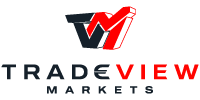
Tradeview |
SCA | $0 | New York, United States of America | |
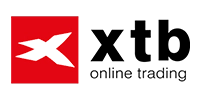
XTB |
FCA | 0$ | United Kingdom | |
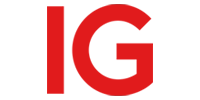
IG Group |
FCA | $250 | United Kingdom |

| Company Name | ICM capital |
| Regulations | FCA |
| Minimum Deposit | $200 |
| Main Branch | London |

| Company Name | Tradeview |
| Regulations | SCA |
| Minimum Deposit | $0 |
| Main Branch | New York, United States of America |

| Company Name | XTB |
| Regulations | FCA |
| Minimum Deposit | 0$ |
| Main Branch | United Kingdom |

| Company Name | IG Group |
| Regulations | FCA |
| Minimum Deposit | $250 |
| Main Branch | United Kingdom |
Top Tips for Selecting the Best FOREX Brokers in Japan
Best FOREX Brokers in Japan for 2026
Take a look at our experts' top FOREX brokers in Japan for 2026:
ICM - Capital 91.10: Best Deposit and Withdrawal Broker
Tradeview - 90.00: Trusted broker that offers very low trading costs as well as comprehensive financial literacy materials for its clients.
XTB - 85.55: Best Customer Service Broker
IG - 85.45: Best Regulations Broker plus Convenient Platform
Saxo Bank - 80.09: Excellent Private Trading Platform
CMC Markets - 80.07: More than 9,000 Assets
ThinkMarkets - 80.05: Aimed at the Audience of Traders

ICM capital
ICM Capital is a UK-origin broker that operates worldwide. The firm provides access to diverse trading products, including FOREX, commodities, futures, and indices. ICM offers a secure and efficient trading environment by combining advanced technology with deep liquidity. The company prides itself on delivering high liquidity, tight spreads, mobile trading, and advanced technical analysis.
Why we picked ICM Capital
For its robust regulatory framework and global oversight. Its presence across multiple jurisdictions demonstrates a genuine commitment to investor protection. This foundation makes it a dependable choice for both new and seasoned traders.
| Broker Evaluation | 9.11 |
| Regulations | FCA |
| Minimum Deposit | $200 |
| Islamic Account | yes |
| Payment Methods | Bank transfer, credit card, Electronic Banks, Crypto |
| Main Branch | London |
| Customer Service | Market Opening Hours |
| Demo Account | Yes |
| Trading Platforms | MT4, MT5, C TRADER, Web Platform |
Pros
-
Segregated client funds.
-
Regulated by the UK’s FCA.
-
Long trading history from 2009.
-
More than 300,000 traders, showing trust.
-
Decent funding options.
-
No swaps.
-
MetaTrader4 (MT4) desktop and mobile download.
-
Competitive spreads
-
ECN spreads starting from zero pips.
-
Fast execution and no-requotes.
Cons
-
No proprietary platform.
-
No US services.
-
Limited cryptocurrency offerings.
-
Inactivity fees which deter casual traders.

Tradeview
Tradeview Markets, the parent company of Tradeview Forex, was established in 2004 and is headquartered in the Cayman Islands. It is committed to offering a broad and accessible trading environment through ECN trading with direct access to dozens of banks and prime liquidity providers, ensuring tight spreads. The broker offers access to a wide range of financial instruments, including FOREX, indices, stocks, cryptocurrencies, and commodities.
Why we chose Tradeview
Our choice was influenced by this broker’s transparent fee structure and competitive pricing, with low spreads and clear cost disclosures. Traders benefit from predictable pricing without hidden charges. Cost efficiency is a crucial advantage in high-frequency and active trading environments.
| Broker Evaluation | 10.00 |
| Regulations | SCA |
| Minimum Deposit | $0 |
| Islamic Account | Yes |
| Payment Methods | Bank Transfer, Credit Cards, Crypto, Electronic banks, local deposits |
| Main Branch | New York, United States of America |
| Customer Service | |
| Demo Account | Yes |
| Trading Platforms | Metatrader 4, Metatrader 5, cTrader, API/FIX |
Pros
-
Variety of trading platforms, such as MT4, MT5, cTrader, and Currenex, catering to different trading preferences and strategies.
-
Provides ECN trading through its innovative Liquidity Connector®, granting direct access to over 50 banks and liquidity providers. Offers tight spreads starting from 0 pips.
-
A low minimum deposit of only $0 is required to start trading, making it accessible to a wide range of traders.
-
Offers a broad range of financial instruments, including FOREX, indices, stocks, cryptocurrencies, and commodities, thus catering to diverse trading interests.
-
Offers educational materials and a demo account, suitable for both beginners and experienced traders looking to refine their strategies.
-
Supports automated trading through the use of Expert Advisors (EA) on MT4 and MT5 platforms.
-
Regulated by CIMA, MFSA, and will soon be regulated by the UK’s Financial Conduct Authority (FCA).
-
Offers global customer service in multiple languages, catering to international traders.
-
Offers competitive leverage up to 400:1.
-
Charges no fees for deposits, making it cost-effective for traders to fund their accounts.
Cons
-
While regulated by CIMA and the MFSA, the broker is still in the final stages of becoming regulated by the tier-one FCA.
-
This means, unfortunately, that the broker currently has no way of offering compensation to affected traders if the broker goes bust. Of course, once FCA regulation is obtained, it will be mandatory for the broker to be part of the Financial Services Compensation Scheme (FSCS) where you could be entitled to compensation of up to £85,000.
-
Trades on the Innovative Liquidity Connector® account are subject to commission charges, which may add to trading costs.
-
Lacks a dedicated mobile app, relying instead on the mobile versions of its available trading platforms.
-
While offering high leverage up to 400:1 can be an advantage, it also introduces significant risks, especially for new traders.

XTB
XTB is a well-regarded broker known for its low costs, extensive asset selection, and advanced trading tools. Founded in 2002 in Poland, it has created a proprietary xStation 5 platform that offers robust features like real-time performance stats, sentiment analysis, and heat mapping. XTB's educational resources are comprehensive, catering to all skill levels with video tutorials, guides, and an accessible Trading Academy. XTB is an excellent choice for cost-conscious traders looking for diverse investment options and high-quality support.
Why we chose XTB
We chose this broker for its responsive and multilingual customer support, available across channels when assistance is needed most. Quick, professional responses reduce friction and build trader confidence. Support quality often reflects overall service reliability.
| Broker Evaluation | 8.55 |
| Regulations | FCA |
| Minimum Deposit | 0$ |
| Islamic Account | yes |
| Payment Methods | Bank transfer, Credit Card, Electronic Banks |
| Main Branch | United Kingdom |
| Customer Service | Market Opening Hours |
| Demo Account | Yes |
| Trading Platforms | MT4, xStation |
Pros
-
20-year history of operation.
-
Regulated by the FCA (UK) and CySEC in Cyprus.
-
Globally recognized, having won multiple awards.
-
Some of the lowest FOREX spreads in the market.
-
Offers protection for client accounts.
-
Emphasis on customer service.
-
Excellent support, as well as learning and research tools.
Cons
-
Does not accept US clients.
-
Number of instruments offered is average-sized.
-
No GSLO.
-
No back-testing or automated trading capabilities.
-
No social trading.

IG Group
IG Group is a highly regarded publicly traded broker that is licensed by 10 regulatory bodies, including the FCA, in its home base of the UK. It offers more than 17,000 financial assets to trade, including currencies, commodities, regular stocks, contracts for difference stocks, ETFs, indices, and cryptocurrencies. Further, it has its own state-of-the-art trading platform and offers a relatively low spread.
Why we chose IG Group
For its clear commitment to transparency and fair dealing, with open terms and client-friendly policies. Honest reporting builds trust and fosters long-term client relationships. We value brokers who prioritise clarity over complexity.
| Broker Evaluation | 8.54 |
| Regulations | FCA |
| Minimum Deposit | $250 |
| Islamic Account | yes |
| Payment Methods | Bank transfer - credit card - Electronic Banks |
| Main Branch | United Kingdom |
| Customer Service | Market Opening Hours |
| Demo Account | Yes |
| Trading Platforms | IG Trading, MT4,ProRealTime,L2 Dealer |
Pros
-
Intuitive mobile and tablet platforms.
-
Low spread costs.
-
Client education offering extensive research materials.
-
Regulated by many reputable authorities.
-
UK and EU clients get negative balance protection.
-
Financially stable and publicly-listed.
-
Rapid response to customer service queries.
-
Extensive range of trading assets.
-
Powerful social trading community.
Cons
-
U.S. clients are limited to FOREX trading only.
-
U.S. clients do not receive negative balance protection.
-
IG CFD prices can be high by industry standards.
-
Limited product portfolio of only CFD and options in many countries.
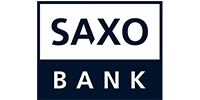
SAXO BANK
Saxo Bank is a well-established, low-risk broker based in Denmark that offers a wide range of trading services to sophisticated traders, institutions, and professional investors. It operates under strict regulatory oversight, ensuring a secure trading environment. The broker provides advanced trading platforms, including SaxoTraderPRO and SaxoTraderGO, catering to high-volume and professional traders with competitive spreads and access to over 71,000 instruments.
Why we chose Saxo Bank
For its comprehensive product range, spanning forex, commodities, indices, and popular CFDs. Such variety allows traders to build diversified portfolios within a single account. This breadth of markets supports evolving strategies and risk preferences.
| Broker Evaluation | 8.09 |
| Regulations | FCA |
| Minimum Deposit | $0 |
| Islamic Account | No |
| Payment Methods | Bank transfer, Credit Card |
| Main Branch | Copenhagen, Denmark |
| Customer Service | Market Opening Hours |
| Demo Account | Yes |
| Trading Platforms | SaxoTrader |
Pros
-
Extensive range of offerings.
-
Offers portfolio-based margin trading for pros.
-
Regulated by top regulators.
-
Excellent trading platforms.
-
Diverse account types.
-
Among the industry’s best research tools.
-
Offers protection for client accounts.
-
No inactivity fee.
-
No platform fees.
-
No minimum funding for entry-level accounts.
Cons
-
Some bonds, options, and futures fees are high.
-
With so many assets, fees can be confusing.
-
High minimum deposit for Platinum and VIP accounts.
-
Does not accept US clients.
-
No MT4 for traders who are used to the platform.
-
No GSLO.
-
No Islamic accounts.
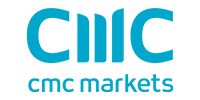
CMC MARKETS
CMC Markets is a global CFD and FOREX broker established in 1989. It is regulated by several authorities globally. The company delivers a formidable offering for traders thanks to excellent pricing, nearly 12,000 tradable instruments, and its proprietary Next Generation trading platform. The platform comes packed with quality research, innovative trading tools, and powerful charting. CMC provides traders with access to an extensive range of CFDs and spread betting across several asset classes.
Why we chose CMC Markets
This broker’s risk management tools and flexible order types stood out to us, enabling traders to tailor positions according to market conditions. Features like stop losses, take profits, and conditional orders provide strategic control. These tools are essential for disciplined trading.
| Broker Evaluation | 8.07 |
| Regulations | FCA |
| Minimum Deposit | 0$ |
| Islamic Account | No |
| Payment Methods | Bank transfer, Credit Card, Electronic Banks |
| Main Branch | United Kingdom |
| Customer Service | Market Opening Hours |
| Demo Account | Yes |
| Trading Platforms | Proprietary Platform, MT4, Web Platform |
Pros
-
Extensive range of offerings.
-
Regulated by the FCA (UK) and other top regulators.
-
Low FOREX fees.
-
Emphasis on education and customer service.
-
Great Web and mobile platforms.
-
Offers protection for client accounts.
-
Research amenities are industry leading.
Cons
-
Does not accept US clients.
-
High CFD spreads for certain indices.
-
It only offers CFD trading, so traders cannot own the underlying asset.
-
Does not support deposits and withdrawals through electronic payments.

think markets
ThinkMarkets is a multi-regulated broker with offices around the globe. The firm is primarily a CFD broker, allowing you to trade across 4,000 instruments in FOREX, futures, commodities, indices, ETFs, crypto, and stocks. With an emphasis on superior customer service, ThinkMarkets maintains round-the-clock support in several languages. It provides different trading accounts suited to individual traders' needs. This includes zero-commission accounts and access to trading guides, analysis tools, and industry news feeds.
Why we chose ThinkMarkets
We selected this broker for its fast and flexible funding options, including bank transfers and card payments. Smooth deposits and withdrawals reduce administrative delays and support efficient capital management. Accessibility of funds is an often-overlooked but essential feature.
| Broker Evaluation | 8.05 |
| Regulations | FCA |
| Minimum Deposit | $0 |
| Islamic Account | Yes |
| Payment Methods | Bank transfer - credit card - Electronic Banks - Crypto |
| Main Branch | Australia |
| Customer Service | Market Opening Hours |
| Demo Account | Yes |
| Trading Platforms | Proprietary Platform, Web Platform, MT4, MT5 |
Pros
-
Beginner assistance is offered through round-the-clock channels.
-
Spreads are as low as 0.0 pips.
-
Round-the-clock expert customer service.
-
CFD shares and indices come at no extra fee.
-
Zero broker fees for FOREX trading.
-
Technical analysis and quality market information.
Cons
-
No binary options are offered.
-
Commissions are charged for two account types.
-
Range of tradeable assets is not as wide as some competitors.
-
No US clients allowed.
There is a high degree of risk involved in trading securities like FOREX, or CFDs, which are highly complex instruments. As a trader, you could be exposed to excessive leverage, questionable broker tactics, market volatility, and limited regulatory protection. Despite your best trading techniques and risk management strategies, your efforts may not be profitable, and you could suffer losses.
What is FOREX and Why Do We Need a Broker to Trade?
The foreign exchange market is a decentralized marketplace where global currencies are bought and sold. Currency trading is conducted electronically over the counter (OTC). This means that all transactions occur via computer networks between traders all over the world rather than on one centralized exchange. The FOREX market operates 24 hours a day and five days a week (Monday to Friday), except for international holidays. The FOREX market is the largest financial market in the world with some six trillion dollars changing hands daily. FOREX brokers in Japan play a key role in this marketplace by enabling clients to buy and sell through a trading platform. Most trading platforms are accessible in web and mobile format.
How Do I Choose the Best FOREX Broker in Japan?
The best retail broker is the one that fits your trading style and goals. Check how much they charge in spreads and commissions, and make sure they’re licensed by a top-tier regulator. Look for fast execution and platforms that are easy to use on mobile. Above all, test their customer support before funding your account.
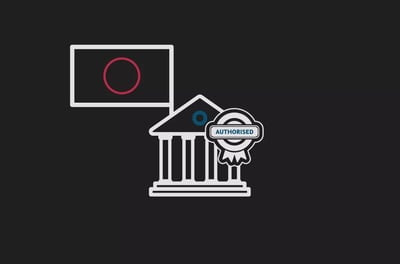
FOREX Regulation and Licensing in Japan
Due to its time zone, Japan is one of the first global financial markets to open during a trading day. Thus, it sets the tone for the Asian trading session. With some $1 trillion in FOREX transactions taking place on Japanese markets daily, it is one of the most important parts of the global FOREX ecosystem.
Regulated FOREX brokers in Japan must obtain this licensing from the Financial Services Agency (FSA), a government-controlled authority that regulates and supervises all types of financial firms operating in the Japanese financial markets.
One of the FSA’s main objectives is to maintain the integrity of the Japanese economy by keeping close watch on the daily management of financial firms within the banking, insurance, securities and investments sectors.
The FSA is a 22-year-old organization that operates under the control of the Ministry of Finance, with direct reporting lines to the highest levels of government in Japan. Many observers say that this apparatus makes it one of the most mature and developed financial centers in the world. This renders the FSA a tier-1 regulator for FOREX brokers in Japan.
Ensure that your chosen broker is regulated by the FSA. FOREX brokers must be regulated by the same regulators that regulate other financial assets, such as crypto, commodities, and indices. If you want to learn more about some of the best-regarded regulators around the world, not just Japan, read our article on regulation here. Remember that you do not have to use a broker with international regulation if your local broker is regulated by a solid local regulator. In the case of Japan, you will be happy to know that the FSA enjoys a fine reputation and is regarded as a tier-one regulator.
Always Be Careful of Non-Regulated Brokers
It is important to learn more about regulatory bodies and their role in the FOREX market. Their role is two-fold:
1. Observing and regulating the work environment in the FOREX market; and
2. Protecting investors and their funds.
Therefore, working with a regulated broker isn't merely a matter of preference—it's a protective measure. When a broker is regulated, it undergoes stringent assessments to ensure transparency, fair trading practices, and due care of your financial security. Opting for an unregulated broker brings with it significant risks.
To ensure that your broker is legit, you can follow these steps:
Ask if the broker is licensed to sell you FOREX
Check if the broker is registered with a top-tier regulator or at least the applicable regulator in your area
Ask if your broker is part of a compensation scheme
Check your statements regularly to ensure that everything is in order
Remember that it's important to comply with all applicable requirements, including any self-regulatory organizations to which brokers belong, and not just those mentioned here.
Be Careful of Non-Regulated Brokers
Your broker should be regulated by a reputable authority who has a history of strong oversight. Your broker does not have to be regulated by an overseas watchdog, you can also go with a regulator in your jurisdiction. To check if your broker is registered with a regulator, navigate to the regulator’s official website.
Leverage
There are many important regulators around the world. Depending on the regulatory framework within which your broker operates, you'll encounter varying leverage rules. Several key regulators have introduced specific guidelines to safeguard retail traders.
Let's take a look at some of these leverage rules set by major regulators:
FSA in Japan:
25:1 for major currency pairs
10:1 for non-major currency pairs
10:1 for gold
10:1 for major stock market indices
10:1 for commodities (excluding gold)
5:1 for equities (stocks)
2:1 for cryptocurrencies
Australian Securities and Investments Commission (ASIC) in Australia:
30:1 for major currency pairs
20:1 for non-major currency pairs, gold, and major stock market indices
10:1 for commodities other than gold and minor stock market indices
5:1 for equities (stocks) and other underlying assets
2:1 for cryptocurrencies
Swiss Financial Market Supervisory Authority (FINMA) in Switzerland:
FINMA doesn't specify leverage limits like ASIC. However, Swiss brokers must strictly adhere to robust capital and risk management requirements, ensuring that they do not offer excessively high leverage that could endanger their financial stability or their clients' funds.
Financial Conduct Authority (FCA) in the UK:
30:1 for major currency pairs
20:1 for non-major currency pairs, gold, and major indices
10:1 for commodities (excluding gold) and non-major equity indices
5:1 for individual equities and other reference values
2:1 for cryptocurrencies
It's important to note that these regulations primarily apply to retail clients. Professional or institutional clients may have access to different leverage levels based on the regulatory environment and the broker's policies. As you can see, responsible regulators closely monitor leverage levels.
Leverage, while offering handsome profits, significantly increases potential losses. Engaging in high leverage trading without a robust risk management strategy is like navigating treacherous financial waters without a safety net. Approach leverage with caution, employ sound trading strategies, and always try to develop a comprehensive understanding of market behaviors and how they affect your portfolio when you trade on leverage.
Stop out
You never want to go into a negative balance as a trader. Therefore, it’s vital to know about the most important terms you will encounter as a FOREX trader. The term "stop out" refers to a situation where the most responsible and best FOREX brokers will automatically close some or all of your open positions to prevent your account from going into a negative balance.
This is most relevant for traders using leverage. The stop-out level is typically expressed as a percentage, representing the margin level at which the broker starts to close out open trades.
0% Stop Out Level:
At this level, when the margin level of the account drops to 0%, the broker will automatically close all open positions. This is the most aggressive stop out level. Essentially, as soon as the equity in the account equals the required margin, the positions get liquidated. This gives no room for your positions to recover even if the market turns in your favor immediately after reaching this level.
50% Stop Out Level:
Here, if the margin level drops to 50%, the broker will start closing out positions.
It offers a bit more flexibility compared to the 0% level. The broker will typically close the most unprofitable positions first, and if that's not enough to bring the margin level back above 50%, more positions will be closed until it's achieved.
100% Stop Out Level:
A 100% stop out level means that when a trader's equity equals the margin required for the open positions, the broker will start closing those positions. It’s important to know that this is similar to the 0% level but might be worded differently based on broker terminology.
In any case, the specific percentage and the order in which positions are closed can vary among brokers, so it's essential for traders to be aware of their broker's policy on stop-out levels.
It's worth noting that while stop-out procedures are meant to protect traders from negative balances, they can lead to significant losses in volatile markets if positions are closed automatically, especially if the market quickly reverses after the stop out. As such, using protective measures like stop-loss orders and not over-leveraging is always a good ploy.
Commissions and Fees
Trading fees can sometimes be hard to understand. Be sure to check how these fees compare with industry standards:
Spreads: There are two main kinds of spread, one is fixed and the other is variable. Generally, the spread refers to the gap between two prices, such as the bid/ask rate in a currency exchange rate. If you are getting a spread of 1.4 pips for the EUR/USD, you can rest easy that you are getting a good deal at present market rates. The narrower the better, this means that a spread of 1.4 pips is better than a spread of 2 pips. This article explains more about this important concept.
Commission: This is nothing more than the service charge that top FOREX brokers require for carrying out transactions on behalf of their clients.
Rollover Fees: When you leave a trade open overnight, the broker normally charges a rollover fee for the facility of holding your trade open for that period. This is because they assume the risk of the market changing adversely.
Withdrawal and Deposit Fees: Some platforms might charge fees for depositing or withdrawing funds. Pay attention to this. It's important to be aware of these and any associated limits or conditions.
Subscription or Inactivity Fees: Certain platforms have monthly charges or fees for inactive accounts. Ensure you're aware of these potential costs.
To keep track of trading fees, you can follow these steps:
Research different brokers and trading platforms.
Compare the fees and charges of each platform.
Choose a platform that offers competitive fees and suits your trading needs.
Remember that trading fees can have a significant impact on your trading profits, so it's important to choose a platform that offers competitive fees and suits your trading needs.
To assess trading costs accurately, the Arincen research team examined broker pricing across multiple sources, combining published fee schedules with observed trading conditions. Our analysis focuses on spreads, commissions, and additional charges that impact traders in practice. You can see the consolidated findings in the table that follows.







| Spread | Commission | Swap | Islamic Account | |
| Currencies | Starting from 1.3 Pips | 0$ | No | Available |
| Stocks | Starting from 18 Pips | 0$ | Yes | Unavailable |
| Commodities | Starting from 2.3 Pips | 0$ | No | Available |
| Indices | Starting from 4 Pips | 0$ | Yes | Unavailable |
Payments, Deposits, and Withdrawals in Japan
Our pricing review draws on Arincen’s independent research, where we analysed broker cost structures using both advertized rates and real-world trading data. By comparing spreads, commissions, and related fees, we aimed to reflect what traders are likely to experience. The outcome of this assessment is displayed in the table below.







| Method | Credit Card | Wire Transfer | Skrill | Neteller | Cryptocurrency | PayPal |
| Deposit fee | 0$ | $0 + Bank commission | 1.9% | 2.5% | Unavailable | 3.75% |
| Withdrawal fee | 0$ | $15 | 1% | $0 | Unavailable | 2% |
FOREX Trading Customer Service
Based on in-house analysis by the Arincen team, we reviewed pricing data from both official broker websites and live market conditions. This included spreads, commissions, and trading fees observed in real use. The results of that comparison are summarized in the table below.







| Live Chat | Phone | |||
| Available | Available | Available | Available | Available |
| Quick response | Quick response | Fast | Fast | Fast |
Technical Aspects of the Broker’s Website
Ask Other Traders on Our Network
Recommended Brokers
Which FOREX broker has the best platform?
Which FOREX broker charges the lowest fees?
We can attest that ICM’s ECN is unmatched in terms of low fees. No matter the experience level of the trader, they can find pricing that suits their pocket, while still getting all the best the broker has to offer.
Which FOREX broker offers the most CFDs?
Which FOREX broker offers the most assets?
Which FOREX broker is best for professionals?
FOREX Trading Scams and How to Avoid Them
Will Your Money be Protected If Your Broker Becomes Insolvent?
The Dos and Don’ts of FOREX Brokers
One of the first things a new FOREX trader ought to do is to check the extent to which the FOREX company abides by the rules and regulations governing its operation. Emphasis must be placed on what it can and cannot do.
There are seven things brokerage firms cannot do:
The FOREX brokerage firm cannot recommend a buy or sell;
The FOREX brokerage firm must not provide price or market expectations (rise/fall);
The FOREX firm cannot control your financial dealings (deposit/withdrawal);
The FOREX brokerage firm should not “manage” your portfolio under any circumstance;
The FOREX brokerage firm cannot grant a client a bonus unless there are clear terms guiding it from beforehand;
The brokerage firm must not use bank accounts not under its name; and
FOREX brokerage firms cannot have or offer the service of account managers.
In short, the role of brokerage firms is strictly conffined to facilitating buyers and sellers to come together toward an agreed-upon commission. FOREX brokerage firms that violate any of the seven rules aforementioned should be avoided. However, should the trader wish to receive any of the above-mentioned services, our advice is to seek an expert website like Arincen, something we will delve into toward the end of this article.
Recommended Brokers
What Trading Platforms, Tools, and Features Should a Broker Offer?
- Decide on your trading style and needs
- Research different platforms such as MT4 and MT5, and compare their features
- Test the platforms with a demo account to see which one suits you best
- Choose a platform that offers the features you need and is user-friendly
- Ensure that the platform is reliable and has a good reputation in the industry
Tip: Invest in Your knowledge
For every aspiring retail trader, knowledge is key to a successful trading journey. We invite you to delve into Arincen's goldmine of insights, strategies, and expert analyses. Whether you're just embarking on your trading venture or trying to level up your trading game, our resources are designed to give you all the information you need. Visit our educational resources here.
What Tradable Assets and Instruments Should My Broker Offer?
- FOREX: By reading this article, you are already curious about FOREX. This type of trading involves buying and selling currencies from different countries on the foreign exchange market with the goal of making a profit. This is done through a broker with an online platform, like MT4 or MT5. FOREX brokers provide tools to traders for executing buy and sell orders in the currency markets. Retail FOREX traders typically look for some popular features when identifying and using a currency trading platform. Traders look for ease of installation and use, which can lead to comparisons of web-based platforms versus downloadable platforms. Fees can be an important consideration as well because the costs can range broadly depending on individual systems.
- CFDs: CFDs allow you to speculate on the future market movements of an underlying asset without actually owning or taking delivery of the asset. CFDs are traded on margin, meaning the broker allows you to borrow money to increase leverage or the size of your position to amplify gains.
- Equities or stocks: These represent ownership in a company and trading them involves buying and selling shares of publicly traded companies.
- Commodities: Items of value such as gold, oil, wheat, and coffee can be traded through a broker or online trading platform.
- Indices: These are a measure of the performance of a group of stocks or other assets. Trading indices involve buying and selling a basket of stocks or other assets that make up the index.
- Bonds: These are debt securities issued by companies or governments to raise capital. When you buy a bond, you are lending money to the issuer, who promises to pay you back with interest later.
- Options: Options are contracts that give the buyer the right, but not the obligation, to buy or sell an underlying asset at a predetermined price and time.
- Futures: These types of contracts obligate the buyer to purchase an underlying asset at a predetermined price and time in the future. This is done through a broker or online trading platform.
- Determine which financial instruments you want to trade.
- Research different brokers and trading platforms.
- Open a trading account with a reputable broker.
- Fund your account and start trading.
As part of our evaluation process, the Arincen team gathered and cross-checked broker pricing from official documentation and live trading environments. This approach allowed us to compare spreads, commissions, and fees under actual market conditions. The breakdown of our findings is presented in the table that follows.
| Brokers | Currency pairs | Stocks | Indices | Commodities | Crypto | ETFs |
| Tradview | 80 Pairs | 5000 Shares | 10 Indices | 10 Commodity | 30 Coins | Unavailable |
| ICM Capital | 67 Pairs | 89 Shares | 17 Indices | 12 Commodity | 6 Coins | Unavailable |
| XTB | 57 Pairs | 1848 Shares | 36 Indices | 22 Commodity | 22 Coins | 135 ETFs |
| IG | 81 Pairs | 21714 Shares | 49 Indices | 39 Commodity | 11 Coins | 12858 ETFs |
| Saxo Bank | 320 Pairs | 22000 Shares | 49 Indices | 39 Commodity | 9 Coins | 6700 ETFs |
| CMC Markets | 330 Pairs | 8000 Shares | 80 Indices | 100 Commodity | 18 Coins | 200 ETFs |
| Think Markets | 46 Pairs | 3750 Shares | 15 Indices | 11 Commodity | 21 Coins | 350 ETFs |
Who is Arincen and What Do We Do?
Put simply, Arincen is a social networking platform that brings together traders and experts to exchange expertise and ideas. Together, we evaluate the best FOREX companies in the world while offering a comprehensive suite of services and tools, all in one place, either via a computer or a mobile app. The platform is so rich that you can create your own private portfolio of traders and experts you like and, at the same time, follow their recommendations and investment sentiments.
Further, thanks to Arincen, users can keep an eye on market-price developments, as well as the latest news. Users can also benefit from the network’s educational courses on offer, to say nothing of exciting webinars – all done in a modern and fast-paced work environment. Get everything you need in one place. Our motto: We Meet to Simplify the Trading World.
Conclusion
Arincen’s Review Methodology
The team at Arincen collected more than 120 pieces of data covering more than 100 licensed FOREX companies. Data collection was done in three ways:
Companies’ Websites.
Other Websites that have ranked FOREX companies.
A survey questionnaire (referred to here as Survey “1”) was sent to the companies invited to participate in the exercise. We have identified 13 criteria for our assessment, each containing several aspects and carrying its own relative weight. These include licensing, deposits and withdrawals, number of assets etc.
Afterwards, we validated the data by:
Registering with FOREX companies as a secret shopper and/or as Arincen.
Survey number “2,” in which we asked these companies’ customers for important feedback and past experience.
The next step saw us evaluate and rank each company, relying on the hard work of 15 Arincen employees. We were careful in ensuring the most accurate assessment possible, including taking into account different languages, as well as the various mobile-app operating systems, e.g., Apple, Samsung, etc.
To add credibility to our research project, we sent a final and third survey (referred to here as Survey “3”) to enable participating FOREX companies to evaluate our research and whether it accurately reflects the realities on the ground. We were fortunate enough to receive a mark of 9.9 out of 10! We have kept to a minimum the margin of error, which stood at a measly 1%. To learn more about how we came up with the evaluation, please click here.
Forex Risk Disclaimer
Trading foreign exchange on margin carries a high level of risk, and may not be suitable for all investors. The high degree of leverage can work against you as well as for you. Before deciding to trade foreign exchange you should carefully consider your investment objectives, level of experience, and risk appetite. The possibility exists that you could sustain a loss of some or all of your initial investment and therefore you should not invest money that you cannot afford to lose. You should be aware of all the risks associated with foreign exchange trading, and seek advice from an independent financial advisor if you have any doubts.
FAQ
Yes, trading FOREX trading is legal in Japan. Brokers must comply with national laws by registering with the appropriate regulator, the FSA. Only then can they offer their services to traders living in Japan.
The FOREX market is a place where global currencies are bought and sold. It is a large and active marketplace that requires technologically superior tools if you are to participate as a retail trader. The market operates 24 hours a day and five days a week (Monday through Friday), except international holidays.
FOREX trading involves buying and selling different worldwide currencies for a profit. Retail traders select a currency pair and, in anticipation of market-driven changes in value, wait for the right moment to make a sale for a profit.
The best FOREX brokers charge any combination of commissions, spreads, and financing fees. Brokers can either charge a spread (the difference between the buy and sell price of a currency pair) and include their facility fee in the spread, or they can charge only a market rate spread and levy a commission per trade outside the spread. Financing fees come into play if you hold your position overnight. You must pay a financing cost for the benefit of keeping your positions open for an extended time.
Good customer service is important to FOREX traders operating in such a fast-moving marketplace. Having access to expert customer service agents means they will always have someone ready to help them resolve any problems. Customer service staff members should be readily accessible, well-trained, and knowledgeable.
FOREX trading is taxable in Japan. Traders are compelled to keep a close eye on their earnings because profits above a certain level attract both regional and state taxes. Speak to a tax expert for more information.
